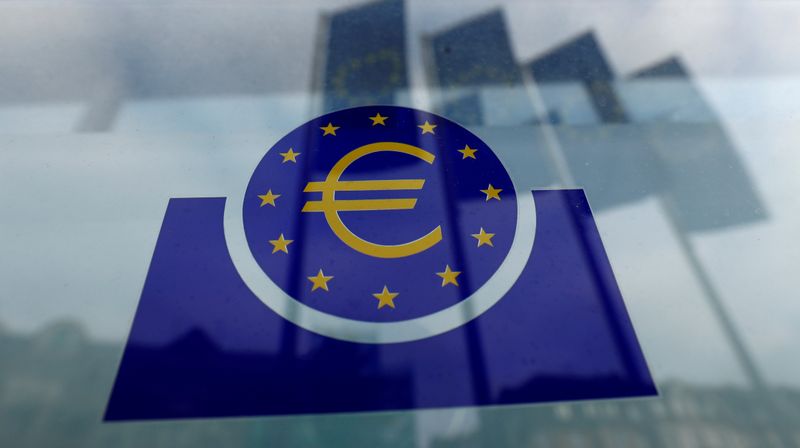FRANKFURT (Reuters) – The European Central Bank may protest that it does not intend to steer the euro’s exchange rate, but it has a large and growing influence on the single currency through its policy and communication, Bundesbank research suggested on Monday.
The ECB is in the difficult position of trying to keep a lid on the euro while avoiding the impression of starting a currency war or leaving itself open to accusations of exchange rate manipulation, such as those made by U.S. President Donald Trump in recent years.
Four Bundesbank studies published on Monday suggested that the ECB’s influence over the exchange rate, including against the U.S. dollar, was large and had increased since the financial crisis, as had volatility on the days when it published its policy decisions.
One of the studies found that the ECB’s impact was strongest when its policy brought down long-term rates, estimating that the ECB could weaken the euro by 0.70% against the U.S. dollar, Japanese yen and UK sterling by lowering the yield on Germany’s five-year government bonds by just 10 basis points.
“This suggests that potential effects on the exchange rate should be taken into account when communicating monetary policy,” the Bundesbank said.
The ECB was forced into hasty damage limitation earlier this month after President Christine Lagarde sent the euro rallying against the U.S. dollar with a message that investors saw as too timid on the euro’s appreciation.
While the currency was eventually reined in, the incident highlighted the market’s sensitivity to ECB communication on the euro at a time when the Federal Reserve and all major central banks are also adopting aggressive stimulus policies to cheapen their currencies and navigate the coronavirus pandemic.
(This story refiles to add dropped word ‘Bank’ in first paragraph)
(Reporting by Francesco Canepa; Editing by Hugh Lawson)


















